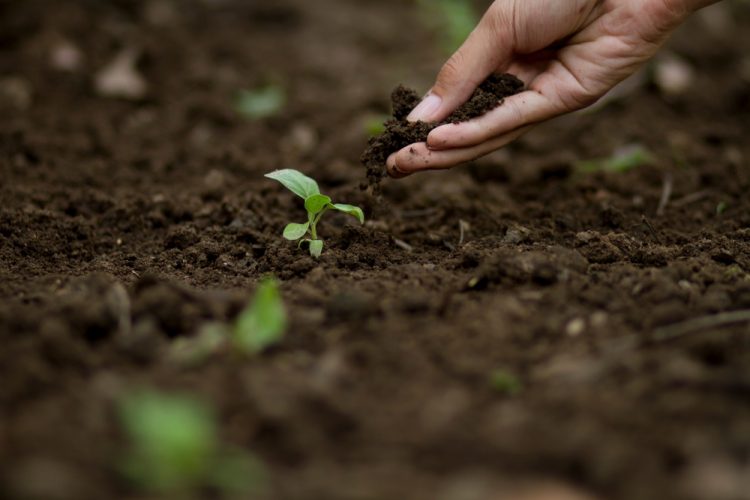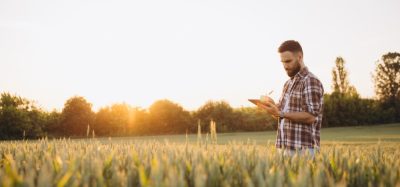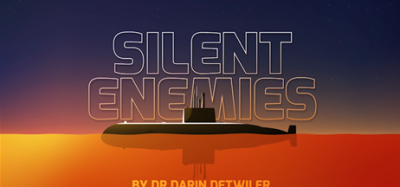From the ground up: why non-state action will be vital for soil health at COP30
Posted: 7 August 2025 | Dr Leigh Ann Winowiecki | No comments yet
As COP30 approaches, Dr Leigh Ann Winowiecki from the Coalition of Action 4 Soil Health (CA4SH) asserts the need to include non-state actors in global discussions to unlock soil health’s vital role in resilient food systems, climate solutions and planetary well-being.


At the heart of global climate action lies a silent, largely overlooked partner: soil – the foundation of life on earth.
Soil doesn’t just grow food – it grows more abundant and nutritious food, supporting the health of people and the planet alike.”
Soil underpins our very existence. From nourishing the plants we grow and filtering the water we drink, to purifying our air and protecting life against the elements, soil is the lifeblood of our planet and the backbone of our food systems. And when it’s healthy, soil doesn’t just grow food – it grows more abundant and nutritious food, supporting the health of people and the planet alike.
According to the Intergovernmental Technical Panel on Soils (ITPS), soil health relates to its ability to “sustain the productivity, diversity, and environmental services of terrestrial ecosystems.” Soil health is a holistic concept that acknowledges its role as the most species-rich habitat on Earth, one of the largest terrestrial carbon sinks and the source of 95 percent of the food humans eat. A function of chemical, biological and physical characteristics,
Yet, global soil health is declining at an alarming rate. Every five seconds an area of soil the size of a football pitch is eroded putting climate stability, human health and food chain resilience at risk. Sadly, the importance of regenerating the earth’s soils largely remains a mere footnote at international climate summits, which has left communities and NGOs to pick up the pieces for decades.
COP30 will be hosted in Brazil – a country shaped by both agribusiness and centuries of indigenous land stewardship, making it the perfect stage to position soil health at the centre of the global agenda. But to get there, national governments must foster inclusive decision making with the people on the ground who have been improving soil health for millennia.
Soil: the foundation and the future
Soil is the vessel connecting life above and below ground – it transforms seedlings in the earth to the food on our plates. But with over one-third of the Earth’s surface degraded, the soil’s ability to contribute to the growth of healthy and nutritious food is being jeopardised. It is the single most important agricultural resource to prevent hunger and ensure a resilient food system, yet widespread soil degradation continues to threatens the food security and livelihoods of more than three billion people globally.
Those who have been preserving soil health for centuries – farmers, pastoralists and Indigenous communities – need an avenue to ensure their voices are represented in climate negotiations.”
Policymakers have a powerful opportunity to exemplify the pivotal role of soil as the connector between climate, hunger, livelihoods and biodiversity. But soil’s complexity has made it politically inconvenient, falling between the cracks of land rights, agriculture and environmental governance. In a sense, the richness of soil and its potential as a multifaceted climate solution has become its political weakness.
This policy vacuum is most glaring when considering the contrast between the stewards of soil and traditional climate decision makers. Those who have been preserving soil health for centuries – farmers, pastoralists and Indigenous communities – need an avenue to ensure their voices are represented in climate negotiations. The knowledge of these communities, which is often passed down through generations, is not just relevant for soil and food systems health – it is essential.
To ensure truly effective and equitable climate solutions, we need the perspectives of both policymakers and communities. And if COP30 is to truly reflect the ‘global mutirão’ (collective effort) that Brazil’s presidency emulates, then non-state action on soil must be pulled out of the margins and placed centre stage.
Belém – a turning point for food systems?
COP30 could go down in history as the ‘Food COP’. Hosted in the Amazonian city of Belém where infrastructure sits atop some of the world’s richest carbon soils, the scene is set for intense discussions around the climate–agricultural nexus.
In his fourth letter to global negotiators, COP30 President-elect Andre Correa do Lago has identified food systems transformation as essential to achieving climate goals, protecting biodiversity and preserving social justice. His calls for transformative action on an equity-driven transition are encouraging; they include support for local and regenerative land management and a vision for a whole-government approach to the food transition.
But for soil health to become a central pillar to global food transformation, we need more than words on a page. Coalition of Action 4 Soil Health (CA4SH) is working with member states and partners to ensure soil health is formally recognised as a climate solution, highlighting that investment in healthy soil by farmers and pastoralists can contribute to both climate change mitigation and adaptation, while securing nutritious food.
The role of non-state actors
COP30 presents a pivotal moment for non-state actors – NGOs, Indigenous groups, farmers, youth advocates and innovators – to put pressure on negotiators to transform promises into action. We need to incentivise farmers, pastoralists and governments to invest in soil health, scale regenerative agriculture across millions of hectares of land, and ramp up access to finance. Stories and experiences of local soil stewardship will be instrumental in guiding policymakers towards decisive action, and pavilions such as the Action on Food Hub – which brings together non-state actors for discussions and capacity building – will be an essential forum for this testimony.
Four years ago, there were no pavilions or side events focused solely on soil health as a food systems and climate solution at the UNFCCC COP. But the momentum of non-state action has since prevailed. The hosting of the Food Systems Pavilion, the promotion of World Soil Day and the creation of the Soil Health Resolution put soil health on the agenda in the COP28 UAE Declaration. Due to The Soil Health Resolution, which provides intelligence on how soil health is central to the three Rio Conventions, COP29 included an unprecedented number of side events on the topic – placing soils at the heart of the climate and food systems conversation.
If we tend to our soil – and to those who steward it – there is no limit to what we can grow: food, resilience and climate justice.”
As COP30 approaches, it is now time to build on past successes and leverage the power of non-state actors to push for explicit soil-health references in COP30 outcomes. This must include Nationally Determined Contribution (NDC) updates and adaptation frameworks. COP28 and 29 elevated soil health from obscurity – but COP30 must transform that visibility into policy action.
CA4SH has been actively engaged in platforming non-state voices since its inception at the UN Food Systems Summit in 2021. Its membership currently exceeds 250 multistakeholder members from across the globe, including more than 45 percent NGOs, CSOs and farmer cooperatives, and more than 12 percent from the private sector. During this critical time, CA4SH’s role as a dedicated space for multistakeholders to take action together has never been so important.
The UNFCCC COP process has huge potential to bring soil health to the forefront of conversations and negotiations – but it requires representation of the entire realm of climate actors in the discussion.
When action is rooted in community and collaboration, it builds rich foundations for the future. If we tend to our soil – and to those who steward it – there is no limit to what we can grow: food, resilience and climate justice.
Meet the author


Dr Leigh Ann Winowiecki is the Global Research Lead for Soil and Land Health at CIFOR-ICRAF. Since 2009, she has co-developed and implemented the Land Degradation Surveillance Framework (LDSF) in over 40 countries across the tropics to systematically assess soil health and land degradation. She also co-leads the Coalition of Action 4 Soil Health (CA4SH), which was launched as part of the 2021 UN Food Systems Summit. With over 250 partners, the Coalition aims to scale up healthy soil solutions globally.
Related topics
Environment, Food Security, Regulation & Legislation, Supply chain, Sustainability, Trade & Economy, World Food









